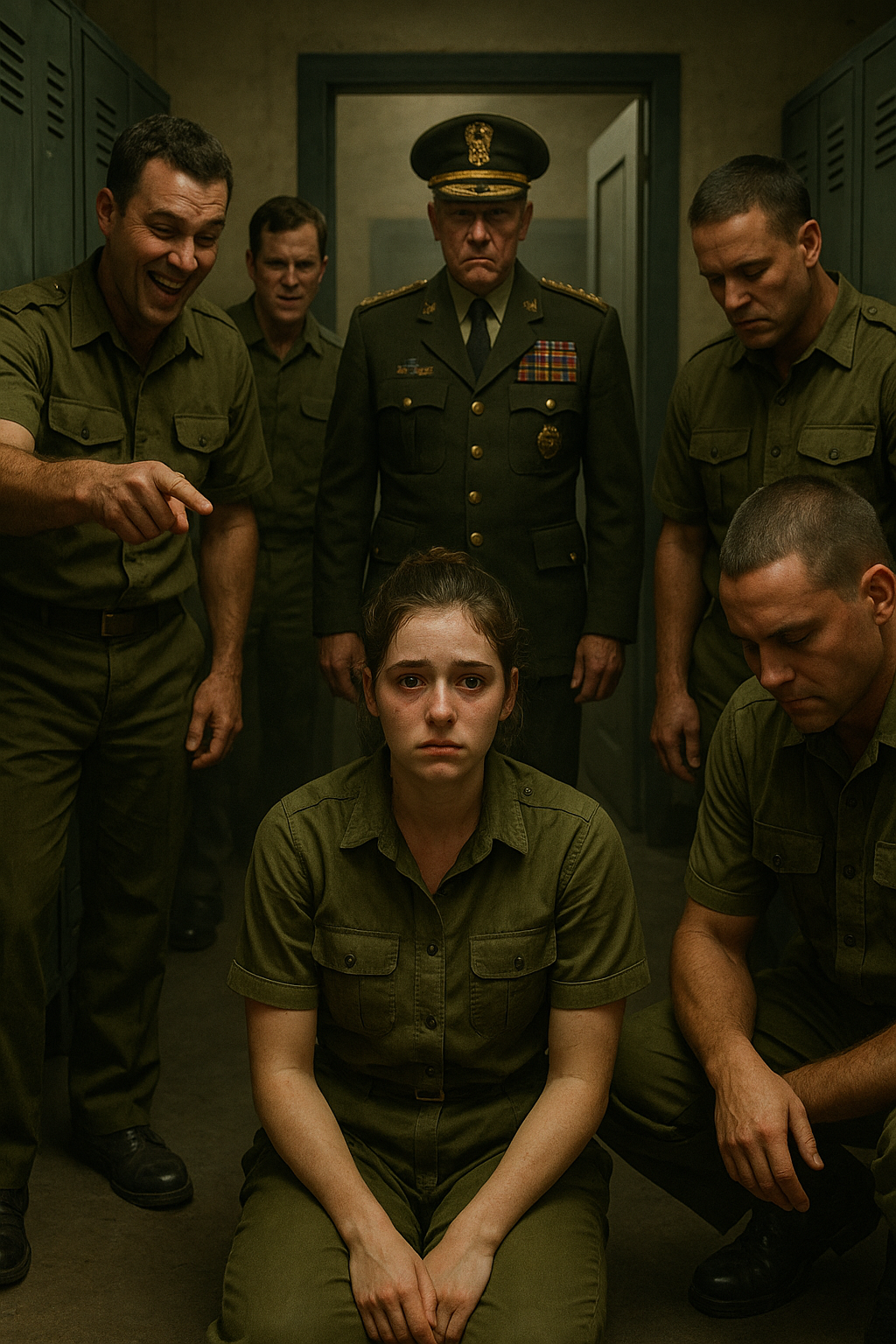The Girl With Scars
In a unit where discipline was ironclad and tradition weighed heavy, the arrival of a single female soldier felt like a disturbance in the order of things. The men had always served shoulder to shoulder with one another—brothers bound by sweat and drills. But when she walked into their ranks, eyes followed her with suspicion and disdain.
At first, the whispers were quiet.
“What’s she doing here?”
“The military isn’t for delicate types.”
“She won’t last a month.”
But contempt has a way of growing bold. Soon, they no longer bothered to hide it. During drills, someone would mutter, “Careful, don’t break a nail.” At meal times, another would smirk, “You should be serving tea, not holding a rifle.” Every word chipped away at her resolve, yet she endured in silence.

Day after day, she trained with them—running, climbing, crawling through mud. Her body kept up, but their mockery never relented.
Until one afternoon, the line between cruelty and humiliation was crossed.
In the changing room after training, a few soldiers noticed something on her back as she removed her uniform. Long, jagged scars ran across her skin like marks carved by fire and steel.
Instead of silence, laughter erupted.
“Look at that—bad romance gone wrong?”
“Or maybe she fought with a cheese grater!”
The laughter swelled, bouncing off the locker-room walls. She sank to the floor, hugging her knees, tears sliding down her face. But even her trembling shoulders didn’t stop them.
And then the door slammed open.
A hush fell instantly.

Standing in the doorway was the general. His sharp eyes scanned the scene: the girl on the ground, the men smirking above her. His voice cracked like thunder.
“Do you fools even know who you’re mocking?”
Not a soul dared to move. The weight of his words pinned them in place.
The general stepped forward, his voice steady, grave.
“She is not some recruit to be toyed with. She is one of the finest intelligence officers our country has ever had. While you were still playing in sandboxes, she was already serving on the front lines.”
He paused, eyes locking on each man in turn.
“These scars you laugh at? They were earned in battle. Her unit was ambushed. Surrounded, outnumbered, pinned down. Many of her comrades would not be alive today if she hadn’t carried them, one by one, out of the kill zone. She bled for them. She almost died for them. And still, she did not retreat.”
The locker room was frozen. The laughter had died, replaced by a crushing silence. Faces flushed with shame.
The general’s voice grew colder.
“And you, instead of honoring her, belittle her. Shame on every one of you who calls yourself a soldier.”
A soldier in the back swallowed hard. His voice cracked as he whispered, “Why didn’t you tell us?”

The girl finally lifted her head. Her eyes were red, but her voice was calm, almost fragile.
“Because I wasn’t looking for praise. I only did my duty. Nothing more.”
The shame deepened. One by one, the soldiers lowered their heads. Then, slowly, one of them stepped forward. His hand extended, trembling slightly.
“Forgive me… and thank you. For what you did—for what you endured.”
Others followed, until every man stood before her, not as mockers but as comrades.
From that day, no one dared to call her weak. She was no longer just a fellow soldier in their unit. She became a symbol—a reminder that courage has no gender, and that scars are not marks of weakness, but of battles survived.
Her presence no longer sparked ridicule. Instead, it commanded respect.
And in the silence that followed, every man in that room carried away a lesson he would never forget:
true strength is often hidden beneath the scars that others laugh at, until the truth silences them forever.